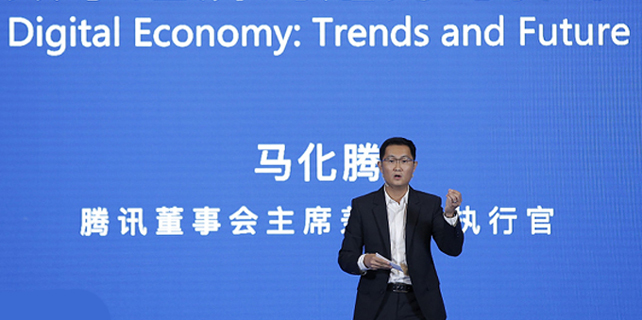China gains global market approval by MSCI inclusion
BEIJING - China won a measure of recognition from the world's financial markets Wednesday (Beijing time) for its tireless efforts to upgrade and internationalize its financial markets.
Global equity index provider MSCI finally included a number of Shanghai and Shenzhen listed stocks in one of its most traded indexes, after a delay of three years.
The MSCI announced Tuesday in the United States (Wednesday in Beijing) that from June 2018, it will include some China A-shares in its EM (Emerging Markets) index and ACWI (All Country World Index).
MSCI plans to include 222 China A large-cap stocks, approximately 0.73 percent of the weight of the EM index at a 5-percent partial Inclusion Factor, in its calculations, according to its 2017 market classification review.
"MSCI inclusion is a major step toward the internationalization of China's stock market. It will have a far-reaching effect on the flow of global capital," said Shi Donghui of Shanghai Stock Exchange. According to Shi, the combined market value of Chinese stocks is nearly 8 trillion U.S. dollars, about a tenth of the world's total stock market capitalization.
"The inclusion meets the needs of international investors and shows confidence in the Chinese economy and financial markets. We welcome this move," said Zhang Xiaojun, spokesperson for the China Securities Regulatory Commission.
Asia Securities Industry & Financial Markets Association also approved of the MSCI action, issuing a statement saying it was an important step in the internationalization of China's markets and improving the investment environment.
"International investors have embraced the positive changes in the accessibility of the China A shares market over the last few years and now all conditions are set for the MSCI to proceed with the first step of the inclusion," said Remy Briand, chairman of the MSCI index policy committee.
"The expansion of Stock Connect has been a game changer for the market opening of China A shares... MSCI is very hopeful that the momentum of positive change witnessed in China over the past years will continue to accelerate," said Briand.
MSCI first considered adding Chinese stocks to its indexes in 2014, since then China's market has been through a steady stream of initiatives to make local exchanges more accessible to the outside world.
Trading links between Hong Kong, Shanghai and Shenzhen were significant steps, enabling foreign investors to buy A-shares with fewer restrictions than previous regimes. A connection of the mainland and Hong Kong bond markets is in the pipeline.
While the announcement of MSCI inclusion is important for China's integration with the global financial system, it will have little initial effect on capital inflow, said Shanghai Stock Exchange's Shi.
The inclusion will come in two steps, the first is in May next year, and the second in August of 2019.
"In a ten year view, this decision is very significant. This marks the beginning of A shares, the biggest EM equity market by market cap and trading volume, joining the pool of investable assets to global investors," said Wendy Liu, Nomura's head of China equity research and chief strategist for Greater China.
The Shanghai Composite Index had edged up 0.15 percent by the end of morning trading after an opening rally.
"A steady increase in the inclusion of A-shares in the MSCI Emerging Markets Index will probably only happen if China continues to liberalize her financial markets, including granting greater access to foreign investors and addressing fears over capital controls," John Higgins, chief market economist of Capital Economics.
It is now difficult to gauge whether China's A-shares will adapt to international best practices, but analysts are confident of long-term benefits of the MSCI inclusion.
"In addition to capital inflows, the style of overseas investment institutions will help traders improve their trading strategies, which will make the A-share market more standardized and internationalized," said Hao Hong, chief China strategist at Bank of Communications International Holdings Co.









